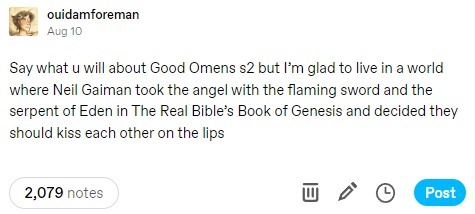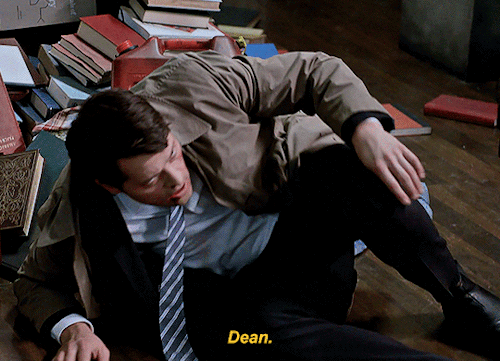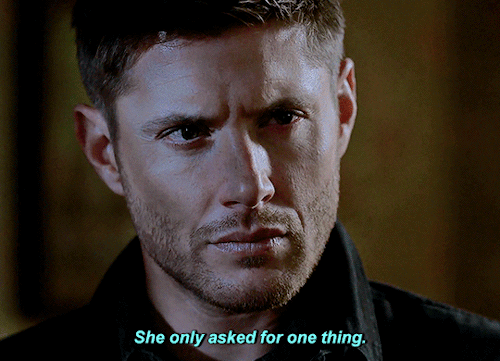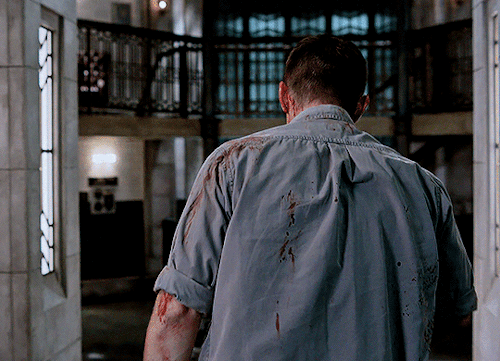All (or At Least How Many Tumblr Would Let Me Add) Of The LeATHERMOUTH Frank Iero Pics I Downloaded Off
All (or at least how many Tumblr would let me add) of the LeATHERMOUTH Frank Iero pics I downloaded off Pinterest yesterday.






























God, I need him.
More Posts from Chkeononeanothr and Others
Probably preaching to the choir here since the spn people who follow my tumblr already know this, but for anyone who needs to hear it, no, Jensen was not "blindsided by the confession." He was filled in months in advance. He had months to ponder it. He and Misha talked about it. Misha and Jensen talked about it with Bobo. They all talked about. We've been told this, in bits and pieces, from various sources. The reason Bobo told Misha first was because by necessity, Misha needed to adjust how he played Cas in the final season to make it a bit more overt. On things that previously had been an undercurrent, and there in the performance, but when they realized that the confession was going to be greenlit, they realized they could lean on it more instead of treading carefully. Misha himself, fyi, said for years, he thought Cas was kinda into Dean and he put a bit of that into his performance, but Misha also was surprised they were permitted to go so far in openly acknowledging that feeling with 15.18, finally.
The reason Jensen wasn't told right off is that Dean couldn't know how Cas felt, and Jensen's method isn't to read ahead, he's told us many times, he doesn't read ahead because he wants Dean's reactions to be as organic as possible. So that was by necessity so Jensen would be playing Dean oblivious to just how far Cas's feelings towards him went. This was an actual plot point of Dean doubting their bond even. He was still informed well ahead of time, with plenty of time for discussion and processing and nothing we have ever heard has indicated he had any negative feeling whatsoever or wariness about Cas's confession.
Jensen in fact was visibly and openly pleased with 15.18 and the confession, as evidenced in PR interviews and all this has been heavily documented already. He has repeatedly praised the episode, and every time he sounds so proud of it and so excited, and he indicated on repeat occasions how excited he was for fans to see it.
In his post-spn comments, Jensen has said he wants to do a follow up where Dean and Cas get to talk about the goodbye scene and Jensen expressed that Dean was devastated, and that Dean wishes he'd told Cas I love you too and hugged him back. There's other examples I could cite.
Make-believe wankbaiting games from bitter anti-shippers is not ever going to make it so that Jensen was snuck up on, conspired against, stabbed in the back, or "blindsided" by the 15.18 confession. Once he was filled in he immediately held Misha's cape and supported Misha and Cas expressing himself.
Awhile ago @ouidamforeman made this post:

This shot through my brain like a chain of firecrackers, so, without derailing the original post, I have some THOUGHTS to add about why this concept is not only hilarious (because it is), but also...
It. It kind of fucks. Severely.
And in a delightfully Pratchett-y way, I'd dare to suggest.
I'll explain:
As inferred above, both Crowley AND Aziraphale have canonical Biblical counterparts. Not by name, no, but by function.
Crowley, of course, is the serpent of Eden.
(note on the serpent of Eden: In Genesis 3:1-15, at least, the serpent is not identified as anything other than a serpent, albeit one that can talk. Later, it will be variously interpreted as a traitorous agent of Hell, as a demon, as a guise of Satan himself, etc. In Good Omens --as a slinky ginger who walks funny)
Lesser known, at least so far as I can tell, is the flaming sword. It, too, appears in Genesis 3, in the very last line:
"So he drove out the man; and placed at the east of the garden of Eden Cherubims, and a flaming sword which turned every way, to keep the way of the tree of life." --Genesis 3:24, KJV
Thanks to translation ambiguity, there is some debate concerning the nature of the flaming sword --is it a divine weapon given unto one of the Cherubim (if so, why only one)? Or is it an independent entity, which takes the form of a sword (as other angelic beings take the form of wheels and such)? For our purposes, I don't think the distinction matters. The guard at the gate of Eden, whether an angel wielding the sword or an angel who IS the sword, is Aziraphale.
(note on the flaming sword: in some traditions --Eastern Orthodox, for example-- it is held that upon Christ's death and resurrection, the flaming sword gave up it's post and vanished from Eden for good. By these sensibilities, the removal of the sword signifies the redemption and salvation of man.
...Put a pin in that. We're coming back to it.)
So, we have our pair. The Serpent and the Sword, introduced at the beginning and the end (ha) of the very same chapter of Genesis.
But here's the important bit, the bit that's not immediately obvious, the bit that nonetheless encapsulates one of the central themes, if not THE central theme, of Good Omens:
The Sword was never intended to guard Eden while Adam and Eve were still in it.
Do you understand?
The Sword's function was never to protect them. It doesn't even appear until after they've already fallen. No... it was to usher Adam and Eve from the garden, and then keep them out. It was a threat. It was a punishment.
The flaming sword was given to be used against them.
So. Again. We have our pair. The Serpent and the Sword: the inception and the consequence of original sin, personified. They are the one-two punch that launches mankind from paradise, after Hell lures it to destruction and Heaven condemns it for being destroyed. Which is to say that despite being, supposedly, hereditary enemies on two different sides of a celestial cold war, they are actually unified by one purpose, one pivotal role to play in the Divine Plan: completely fucking humanity over.
That's how it's supposed to go. It is written.
...But, in Good Omens, they're not just the Serpent and the Sword.
They're Crowley and Aziraphale.
(author begins to go insane from emotion under the cut)
In Good Omens, humanity is handed it's salvation (pin!) scarcely half an hour after losing it. Instead of looming over God's empty garden, the sword protects a very sad, very scared and very pregnant girl. And no, not because a blameless martyr suffered and died for the privilege, either.
It was just that she'd had such a bad day. And there were vicious animals out there. And Aziraphale worried she would be cold.
...I need to impress upon you how much this is NOT just a matter of being careless with company property. With this one act of kindness, Aziraphale is undermining the whole entire POINT of the expulsion from Eden. God Herself confronts him about it, and he lies. To God.
And the Serpent--
(Crowley, that is, who wonders what's so bad about knowing the difference between good and evil anyway; who thinks that maybe he did a GOOD thing when he tempted Eve with the apple; who objects that God is over-reacting to a first offense; who knows what it is to fall but not what it is to be comforted after the fact...)
--just goes ahead and falls in love with him about it.
As for Crowley --I barely need to explain him, right? People have been making the 'didn't the serpent actually do us a solid?' argument for centuries. But if I'm going to quote one of them, it may as well be the one Neil Gaiman wrote ficlet about:
"If the account given in Genesis is really true, ought we not, after all, to thank this serpent? He was the first schoolmaster, the first advocate of learning, the first enemy of ignorance, the first to whisper in human ears the sacred word liberty, the creator of ambition, the author of modesty, of inquiry, of doubt, of investigation, of progress and of civilization." --Robert G. Ingersoll
The first to ask questions.
Even beyond flattering literary interpretation, we know that Crowley is, so often, discreetly running damage control on the machinations of Heaven and Hell. When he can get away with it. Occasionally, when he can't (1827).
And Aziraphale loves him for it, too. Loves him back.
And so this romance plays out over millennia, where they fall in love with each other but also the world, because of each other and because of the world. But it begins in Eden. Where, instead of acting as the first Earthly example of Divine/Diabolical collusion and callousness--
(other examples --the flood; the bet with Satan; the back channels; the exchange of Holy Water and Hellfire; and on and on...)
--they refuse. Without even necessarily knowing they're doing it, they just refuse. Refuse to trivialize human life, and refuse to hate each other.
To write a story about the Serpent and the Sword falling in love is to write a story about transgression.
Not just in the sense that they are a demon and an angel, and it's ~forbidden. That's part of it, yeah, but the greater part of it is that they are THIS demon and angel, in particular. From The Real Bible's Book of Genesis, in the chapter where man falls.
It's the sort of thing you write and laugh. And then you look at it. And you think. And then you frown, and you sit up a little straighter. And you think.
And then you keep writing.
And what emerges hits you like a goddamn truck.
(...A lot of Pratchett reads that way. I believe Gaiman when he says Pratchett would have been happy with the romance, by the way. I really really do).
It's a story about transgression, about love as transgression. They break the rules by loving each other, by loving creation, and by rejecting the hatred and hypocrisy that would have triangulated them as a unified blow against humanity, before humanity had even really got started. And yeah, hell, it's a queer romance too, just to really drive the point home (oh, that!!! THAT!!!)
...I could spend a long time wildly gesturing at this and never be satisfied. Instead of watching me do that (I'll spare you), please look at this gif:

I love this shot so much.
Look at Eve and Crowley moving, at the same time in the same direction, towards their respective wielders of the flaming sword. Adam reaches out and takes her hand; Aziraphale reaches out and covers him with a wing.
You know what a shot like that establishes? Likeness. Commonality. Kinship.
"Our side" was never just Crowley and Aziraphale. Crowley says as much at the end of season 1 ("--all of us against all of them."). From the beginning, "our side" was Crowley, Aziraphale, and every single human being. Lately that's around 8 billion, but once upon a time it was just two other people. Another couple. The primeval mother and father.
But Adam and Eve die, eventually. Humanity grows without them. It's Crowley and Aziraphale who remain, and who protect it. Who...oversee it's upbringing.
Godfathers. Sort of.
Here's what sticks in my craw: why ON EARTH does fanon imagine that Cas has 'self-esteem issues' and experiences his love for Dean as a wet, miserable kind of yearning? What is it about any part of anything that happens on Supernatural makes anyone think that Cas, a cosmic, Eldritch being, a warrior of god, who literally hung the stars and has existed for a bazillion years, is reduced to teenage angst by Dean's pussy?
Like, when Cas says "the one thing I want I know I can't have" why do y'all think it's a piece of Dean's ass? Why does ANYONE think Cas doesn't know Dean loves him? Dean has shown Cas he loves him with literally everything he has again and again and again. Even the way Dean feels like Cas can absorb his anger is Dean showing Cas love and trust. Cas and Dean have chosen each other, forgiven each other, and been the only reliable thing in each others' lives over, and over and over again. Cas fucking knows that Dean loves him. Cas can literally hear Dean's thoughts, and feel his yearning. Cas was only saying the quiet part out loud when he said he loved Dean, because it was already obvious! If there was anyone feeling wet and lovesick, it would be DEAN, if he ever had a break in the battle to fucking feel things, which he did not.
Like, hear me out: what if the one thing Cas knows he can't have is the one thing he knows he signed over to the empty? His happiness, and by extension, Dean's, because he knows Dean loves him? What if Cas is saying: I know I can't have this thing I want for myself: to be the one to MAKE YOU HAPPY, but I can save you, and maybe Cas's belief in Dean is such that he still hopes and believes Dean will find a way to make himself happy if he lives.
After Cas's death, Dean is trying to live for him. Trying to be what Cas believed he was. It's what CANONICALLY gives Dean the strength to defeat Chuck by not killing him! And, after Dean's death, he CANONICALLY goes in search of happy endings. Like... THAT IS EXPLICITLY STATED.
I AM HAVING AN ALL CAPS MOMENT, SO SUE ME.
Guys, Cas is not a wet, yearning baby who needs Dean to say or do ANYTHING to validate his love. HE KNOWS. He is a being of unimaginable age and power. He is not beleaguered by self-esteem issues, or the need to tongue-wrestle Dean. Like, he might WANT TO, but he CANONICALLY does not need to in order to experience a happiness so complete that it puts paid to his deal. His happiness is THAT NOW DEAN ALSO KNOWS, and he can tell Dean why, and show him who he is in the mirror of that love.
Also, he is not dead, he is just on another plane of existence, and neither is Dean. Cas is a profoundly unselfish badass. He is not fucking PINING. He made a play, the best one he had. He is a strategist, and he knows Dean BY HEART.
"my daughter is completely fine!" your son is looking at 600 saved photos of gerard way.
something something isaac lahey losing his older brother as a kid and derek hale also losing his siblings, older and younger. isaac staying loyal to derek long past the point that he probably should've only to ultimately be kicked out by derek very shortly after derek got his actual younger sister back, after directly using isaac as a tool to find her. the show trying to imply that isaac was romantically interested in cora but doing such a half assed job at it that it's both possible and objectively more interesting to interpret his curiosity about her as some kind of jealousy. is this anything?
thought about Maddie for a second and wanted to hug someone. this woman had the worst first marriage possible with someone she once believed she loved and thought loved her back. she fought her way out of that and met her freedom. found a friend in the gentlest man, loved him and allowed him to love her in return, so much that she proposed marriage because it was worth celebrating. she had the most heartbreaking time as a child, swallowing her own grief and trying to makeup for her parents' grief to make sure her remaining brother would survive. would feel loved. then she had to stay away from him in the worst way possible, twice even, and chose to come back. chose to let him love her bigger than postcards, listen to her stories about the brother they both shared. her heartbreak in her parents became her distrust in herself and she had a beautiful baby girl who needed to be protected and cherished. of course she deserved only the good in life but what if Maddie wasn't seeing herself as good. fought an ocean, ran across states, all so she could find the good in her reflection again and hold her baby girl with the warmth that was always theirs. helped people as a nurse, watching lives saved and lost every day for years, and didn't want to be seen that way but she found newer ways to help. protected her team. protected herself. lost herself. found herself even more. there's a brilliance to her that holds the ship steady. there's a strength to her clarity to her that lowers the anchors to get off the grief's waves and walk home to hope. there's anger and joy and fatigue and beauty - all wrapped up in every day she chooses. and she's choosing to live. with it all, for it all, she chooses to live.
-
 idkwh0y0uare-haha liked this · 5 days ago
idkwh0y0uare-haha liked this · 5 days ago -
 ilimio liked this · 1 week ago
ilimio liked this · 1 week ago -
 naiuswrld liked this · 3 weeks ago
naiuswrld liked this · 3 weeks ago -
 not-a-heterosexual0 liked this · 3 weeks ago
not-a-heterosexual0 liked this · 3 weeks ago -
 droommp4 liked this · 1 month ago
droommp4 liked this · 1 month ago -
 knifeprtyihf liked this · 1 month ago
knifeprtyihf liked this · 1 month ago -
 er0gutz liked this · 1 month ago
er0gutz liked this · 1 month ago -
 clubpenguinfan626 liked this · 1 month ago
clubpenguinfan626 liked this · 1 month ago -
 my-chemical-decay001 reblogged this · 1 month ago
my-chemical-decay001 reblogged this · 1 month ago -
 gayorphancannibal liked this · 1 month ago
gayorphancannibal liked this · 1 month ago -
 your-arms-are-my-cocoon liked this · 1 month ago
your-arms-are-my-cocoon liked this · 1 month ago -
 daffyduckson liked this · 1 month ago
daffyduckson liked this · 1 month ago -
 crown-things reblogged this · 1 month ago
crown-things reblogged this · 1 month ago -
 crown-things liked this · 1 month ago
crown-things liked this · 1 month ago -
 living-deadgrl liked this · 1 month ago
living-deadgrl liked this · 1 month ago -
 poeticallydisgraced liked this · 1 month ago
poeticallydisgraced liked this · 1 month ago -
 push-upsindragg reblogged this · 1 month ago
push-upsindragg reblogged this · 1 month ago -
 rmwfe liked this · 1 month ago
rmwfe liked this · 1 month ago -
 bloody-foundations liked this · 1 month ago
bloody-foundations liked this · 1 month ago -
 push-upsindragg reblogged this · 1 month ago
push-upsindragg reblogged this · 1 month ago -
 frankiemustdies reblogged this · 2 months ago
frankiemustdies reblogged this · 2 months ago -
 frankiemustdies liked this · 2 months ago
frankiemustdies liked this · 2 months ago -
 justabiii liked this · 2 months ago
justabiii liked this · 2 months ago -
 holdingsum1shairback liked this · 2 months ago
holdingsum1shairback liked this · 2 months ago -
 v4mpirsqu1d liked this · 2 months ago
v4mpirsqu1d liked this · 2 months ago -
 aetherin21 liked this · 2 months ago
aetherin21 liked this · 2 months ago -
 oliveexedotcom liked this · 2 months ago
oliveexedotcom liked this · 2 months ago -
 fluffylixie liked this · 2 months ago
fluffylixie liked this · 2 months ago -
 toastmrlord liked this · 2 months ago
toastmrlord liked this · 2 months ago -
 roninxd liked this · 2 months ago
roninxd liked this · 2 months ago -
 1nvader-k liked this · 2 months ago
1nvader-k liked this · 2 months ago -
 silly-little-guyys reblogged this · 2 months ago
silly-little-guyys reblogged this · 2 months ago -
 silly-little-guyys liked this · 2 months ago
silly-little-guyys liked this · 2 months ago -
 jamiewalkr liked this · 2 months ago
jamiewalkr liked this · 2 months ago -
 liebesvampir reblogged this · 2 months ago
liebesvampir reblogged this · 2 months ago -
 liebesvampir liked this · 2 months ago
liebesvampir liked this · 2 months ago -
 br1ng-out-th3-old-gu1llot1ne reblogged this · 2 months ago
br1ng-out-th3-old-gu1llot1ne reblogged this · 2 months ago -
 slitoriskiss liked this · 2 months ago
slitoriskiss liked this · 2 months ago -
 urbanangelsz liked this · 2 months ago
urbanangelsz liked this · 2 months ago -
 stolensquabbles reblogged this · 2 months ago
stolensquabbles reblogged this · 2 months ago -
 stolensquabbles liked this · 2 months ago
stolensquabbles liked this · 2 months ago -
 annananamustdie liked this · 2 months ago
annananamustdie liked this · 2 months ago -
 midwestcowboy22 liked this · 2 months ago
midwestcowboy22 liked this · 2 months ago -
 hphsts liked this · 2 months ago
hphsts liked this · 2 months ago -
 cloxite liked this · 2 months ago
cloxite liked this · 2 months ago -
 wife-beater77 liked this · 2 months ago
wife-beater77 liked this · 2 months ago -
 mcrnumveronefangz liked this · 2 months ago
mcrnumveronefangz liked this · 2 months ago


















